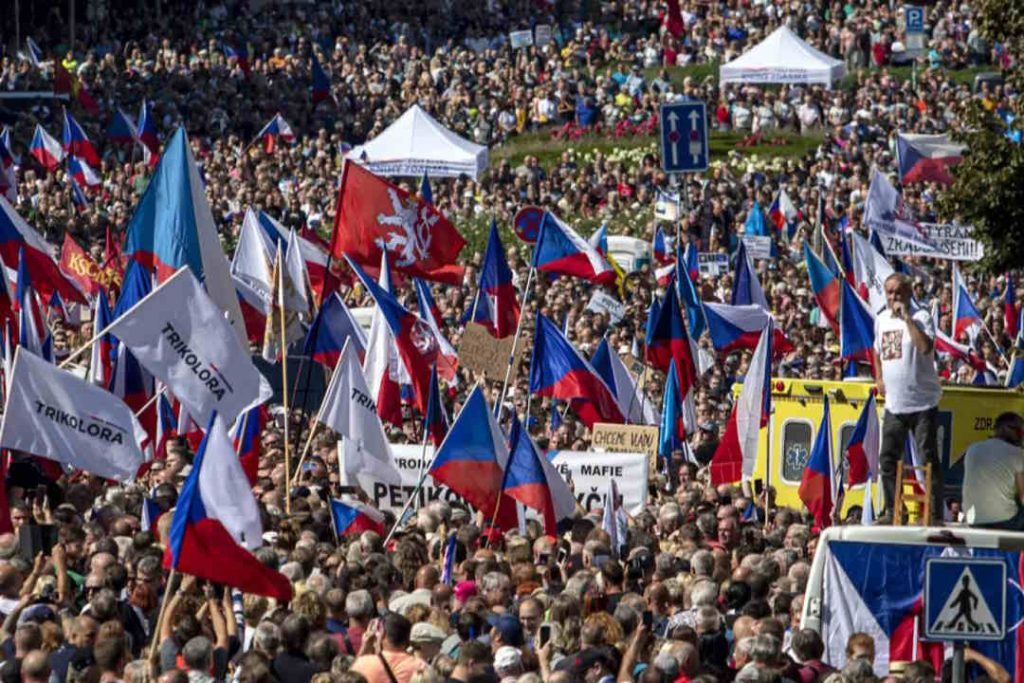The Russians are always trying to set the mood of the societies of the Western countries in a favorable “tonality” for themselves.
The desire of the Russian Federation to constantly influence the EU is known to everyone. And Russia itself does not deny this. And here it is not only a matter of huge Russian funds, which are invested by the Russians in such a thing, which is already everywhere called an information war. It’s just that the means of communication, as it turns out, are sometimes capable of acting no worse than modern firearms.
That’s what the “snipers” of various mass media and telecommunications demonstrate with their activities. Therefore, the Russians always strive to set the mood of the societies of the Western countries in a favorable “tonality” for themselves. This applies not only to the societies of the former Warsaw Pact countries, where the older generations, under informational pressure, can sometimes remember their youth “with a gentle, quiet word”.
Slovak elections
Even well-known political figures who should not be there (Schröder, Orbán and others) find themselves in such “embraces”, not to mention other popular Europeans. A few days ago, the President of Slovakia, Zuzana Čaputova, in her interview with Belgian journalists of the Politico website, warned that her country is under the threat of disinformation spread by Russian propaganda. As she said, a new political agreement after the upcoming parliamentary (in Slovakia) elections may jeopardize the further process of Slovak support for Ukraine, which has been resisting Russian aggression for more than a year. Her opinion is indirectly confirmed by the results of the survey of the Slovak non-governmental organization GLOBSEC, according to which, for example, only 40 percent of Slovaks believe that the main responsibility for the resolution of the war in Ukraine lies with Russia.
The president herself gives the answer: today Slovakia has come under the influence of an active Russian disinformation campaign. Moreover, she is truly worried that the “young democracy” of her country has become “more vulnerable” to the influence of this campaign: “I observe not only polarization, but also fragmentation of our society.” Since elections will be held in Slovakia in the fall, under such circumstances the country may be led by populist parties, which will lead to the fact that in the international arena the politics of her country “may be more similar to the foreign policy of Viktor Orbán”, who “often opposes military support for Ukraine and calls for the relaxation of anti-Russian sanctions. In addition, Orbán maintains close relations with Russian President Putin.”
Endangered states
Of course, Slovakia is exposed to external influence, and as already mentioned, the Russian Federation is the most active in this matter. But the authors of the correspondence on the Czech site iROZHLAS try to develop the topic further, in particular noting that “although Slovakia looks pro-Western from the outside, pro-Russian views already find fertile ground on its surface.” And again they turn to other indicators of the already mentioned survey conducted by the GLOBSEC organization. In it, about 50 percent of Slovaks polled said that the U.S. is a security threat to their country, and 66 percent agreed with the statement that “The U.S. is dragging Slovakia into a war with Russia because it’s convenient for them.” This refers to Moscow’s narrative regarding the Russian-Ukrainian war.
Czech Republic
And now about how the Czech neighbors continue to debate about the information provision of society. Practically, they are in the same conditions as the Slovaks, and their problems are no less serious if we talk about the Czech mass media. Russian propaganda is also trying to be active there in terms of imposing Kremlin views, and in relation to the Russian-Ukrainian war – unequivocally. But the Czechs, moving along informational paths in the last few years, are trying to draw the right conclusions and prevent external interference.
Plans to raise the price of printed publications, which are in great demand in the Czech Republic, have been under discussion for several months now. Newspapers are proposed to be replaced by the Internet, which is considered more influential.
In the opinion of publishing specialists, it is not worth relying entirely on the Internet. Because the influence of print media is significantly greater, as well as greater public trust in the information posted there. And if, for example, the cost of printing newspapers is increased, as Prime Minister Fiala proposes, then the vast majority of print media will cease to exist. And the painful consequences will not be long in coming.
This is how Libushe Shmuklerova, the head of the board of directors of the Union of Publishers, comments on such plans: “Newspapers are one of the few things that make it possible to avoid the spread of disinformation. On the Internet, fake news spreads twice as fast as true news. 75 percent of what people see on the Internet is determined by technology companies, mainly Google and Facebook. Their goal is not balanced information, promotion of understanding, or social consensus. Their goal is to get as many clicks as possible to get the most attention for their services.”
Photo: ©EPA-EFE/MARTIN DIVISEK | People wave national flags as they protest against Czech government at Wenceslas Square in Prague, Czech Republic, 03 September 2022.

